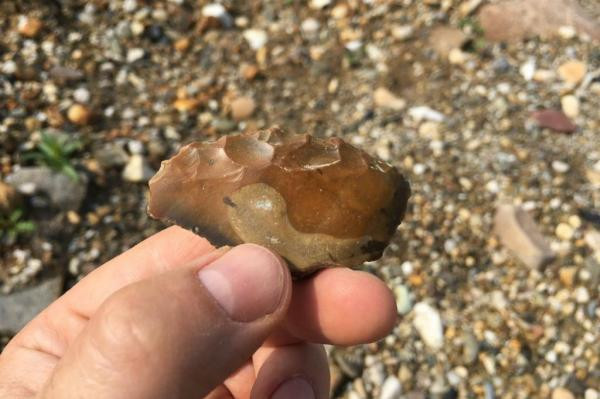Germany used to be covered by 450,000 years ago
The new study shows that Germany was covered by glaciers 450,000 years ago, and the earliest human settlers came when the glacier retreated about 400,000 years ago. Previous estimates suggest that the ice age in the Quaternary appeared in Germany some 350,000 years ago.

So far, sediment samples from this period of special geological history have been hard to find. But mining operations outside Leipzig showed sediments representing the Quaternary ice age.
"The Quaternary sediments in central Germany are the perfect archives to understand the regional climate changes during the past 450,000 years," Tobias Lauer, a geological geographer at the Max Planck Institute for Evolutionary Anthropology spoke. "This is because all the sediments representing the development of ice and retreat of Scandinavian glaciers into Europe have been preserved here.".
The sediments obtained from the Weisse Elster River and the Saale River in Saxony also help scientists determine the first ice age in Germany.
"By systematically searching for the underground river system, we found that the first glacier coverage in central Germany during the Elsterian ice age, named after the Elster River, appeared about 450,000. years ago, 100,000 years earlier than previously anticipated. " - Lauer said.
The researchers also found medieval stone artifacts between sediments from Weisse Elster and the Saale basin. These rock fragments suggest people came to Germany from 400,000 years ago, when the first glaciers withdrew.
Scientists have studied the medieval and Pleistocene sediments in depth and published in Scientific Reports.
"This study provides us with an understanding of the timing of the ice cycle and climate changes of the European ice age," the scientists said.
You should read it
- ★ The surprising relationship between climate change - birth rate and consequences
- ★ Global warming is killing intestinal bacteria in lizards
- ★ Climate change is causing the sea to flow faster, scientists are still confused about what the harm will be
- ★ Birds are adapting to climate change because of their genes
- ★ Climate change puts bees at risk of extinction, but it's not too late for humanity to save them and save themselves